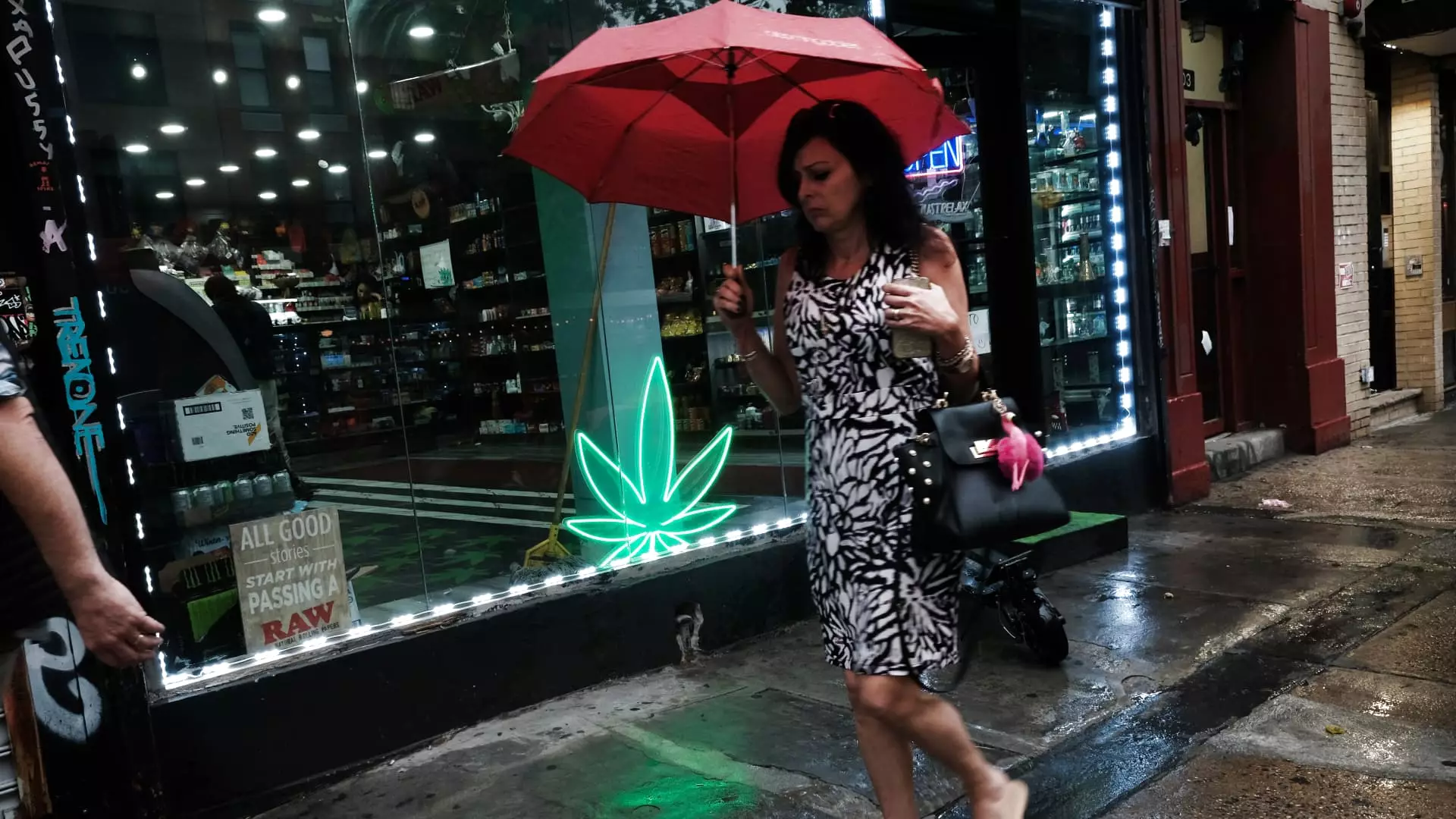Coss Marte, the owner of a prospective marijuana dispensary in lower Manhattan, has already incurred losses of over $1 million despite his business not even being open yet. Marte was granted a dispensary license based on his prior marijuana-related convictions, as part of New York’s Conditional Adult Use Retail Dispensary (CAURD) program. However, as the state strives to expedite the slow rollout of legal weed, Marte’s business, along with numerous others, remains in limbo, potentially facing financial ruin with the impending release of general licenses. Marte expressed his concerns, stating that bankruptcy is a distinct possibility.
Opening dispensaries in New York comes with various challenges, such as finding suitable locations and securing funding. Nonetheless, lawsuits have proven to be the biggest obstacle for most CAURD licensees, hindering them from launching their businesses. Recently, the state’s Cannabis Control Board voted for new regulations to expand New York’s limited legal weed market. These changes will allow a wider range of applicants to apply for licenses, catering to the demand that has been difficult to meet due to regulatory hurdles and a thriving illicit market. Chris Alexander, the executive director of the Office of Cannabis Management (OCM), hailed the move as a significant expansion and a step towards making regulated cannabis accessible to New Yorkers throughout the state.
Existing license holders, who were initially prioritized due to their pre-legalization marijuana convictions, feel neglected by the state’s shifting priorities. This preferential treatment was intended to promote restorative justice by granting opportunities to those affected by the prohibition era before larger corporations took over the industry. However, legal challenges from medical marijuana and veterans groups have suspended further license issuances and business openings, citing the program’s constitutionality. Consequently, only 23 out of more than 400 licensees have managed to open their dispensaries, while over 1,500 unlicensed businesses have been operating in New York City alone. To the disappointment of the license holders, Tuesday’s announcement made no reference to their predicament or the ongoing legal debates surrounding their legitimacy.
Starting in October, the state will open license applications to the general public, as well as large multistate manufacturers and medical companies, for various segments of the cannabis industry, including retail, cultivation, processing, and distribution. This expansion paves the way for major players like Columbia Care, Cresco Labs, Curaleaf, Green Thumb, and Ascend Wellness Holdings to enter the market. The revised framework holds the potential to boost New York’s fledgling legal market by increasing the number of dispensaries, which will subsequently drive sales and tax revenues. According to the Cannabis Control Board, licensed dispensaries in the state have reported over $70 million in cumulative sales as of late August. By 2025, New York’s recreational market is anticipated to generate over $1 billion annually, increasing to $4.41 billion by 2030, on par with states like California, which has already achieved $4.51 billion this year.
Jeff Schultz, a marijuana attorney at Foley Hoag, viewed the new eligibility requirements as a momentous development that would enable New York to meet its growth targets. He underlined the necessity of having a substantial number of retailers to satisfy consumer demand and address the existing supply chain issues prevalent in the market. Meanwhile, the plight of Marte, who invested considerable sums of money into opening his dispensary on Manhattan’s Lower East Side, remains uncertain. Despite being awarded a CAURD license in April 2022 after serving prison time for drug dealing, Marte has been unable to open his business due to the program’s suspension and ongoing litigation. When contacted, the OCM declined to comment on the pending litigation. Alexander reasserted the office’s commitment to the success of licensees but provided little solace to Marte, who described the situation as his dream turning into a nightmare.
The challenges faced by marijuana dispensaries in New York highlight the complexities of establishing a legal cannabis market. The financial implications of delayed licenses, coupled with legal battles and regulatory hurdles, create significant uncertainties for entrepreneurs like Marte. With the upcoming expansion of eligibility, the state hopes to realize its ambitious goals for the industry. However, it is crucial to address the concerns of existing license holders who have been left in limbo, as their dreams and investments hang in the balance. Only time will tell if New York’s aspirations for a thriving legal weed market can overcome these obstacles and successfully navigate the road ahead.


Leave a Reply